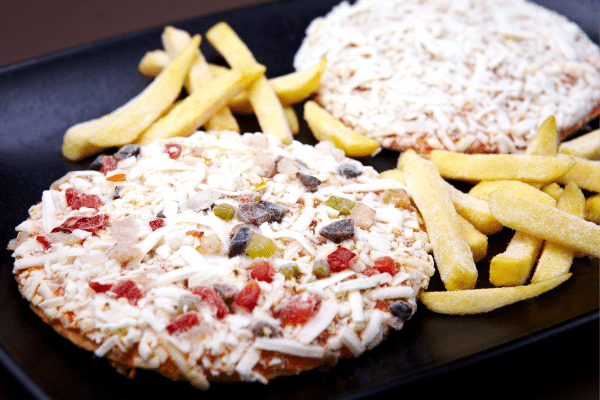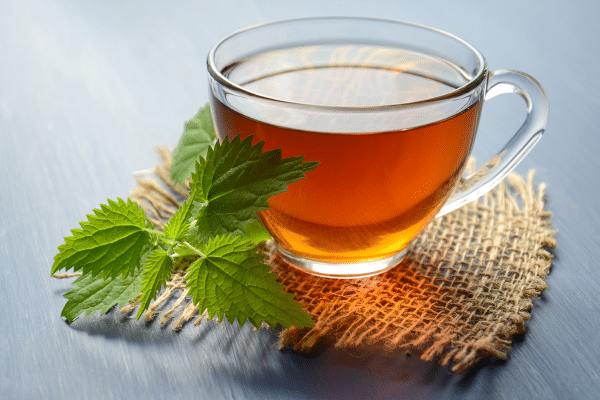Bloating can manifest as an uncomfortable sensation, a visible distension of the stomach, or even a nagging inconvenience that impacts daily activities and overall quality of life. The sources of bloating are multifarious, rooted in dietary choices, eating behaviors, and other lifestyle factors. While it might often seem elusive, relief from bloating is achievable through practical and accessible means. This article aims to unveil a series of tested hacks, grounded in scientific principles, to alleviate and control bloating, offering readers pathways to a more comfortable and bloat-free life.
Contents
Eat Slowly

Eating too quickly often leads to bloating because it involves the ingestion of excess air. When meals are consumed in a hurry, it not only affects digestion but also exacerbates the retention of air in the stomach and intestines. This trapped air is a primary contributor to that familiar and unwanted swollen feeling. A conscious effort to eat at a slower pace can alleviate this issue, promoting better digestion and reducing air intake.
Implementing habits like chewing food thoroughly and taking pauses between bites can significantly mitigate bloating. Mindful eating, focusing on flavors, textures, and the overall eating experience, can naturally slow down the eating pace. These practices not only aid in reducing bloating but also contribute to improved digestion and nutrient absorption, fostering an overall healthier digestive system.
Drink Plenty Of Water

Adequate hydration is pivotal in managing and preventing bloating. Drinking water facilitates the flushing out of excess sodium from the body, a common culprit of bloating. Moreover, staying well-hydrated ensures the digestive system functions optimally, preventing constipation, another common bloating source. Ensuring a regular and adequate intake of water can significantly mitigate these factors and promote overall digestive health.
Various strategies can be employed to increase daily water intake. These include setting regular reminders to drink water, ensuring a bottle of water is always within reach, and incorporating foods with high water content into the diet. Monitoring the color of urine can also serve as an effective indicator of hydration levels, guiding adjustments to water intake as necessary to maintain optimal hydration.
Avoid Processed Foods

Processed foods often contain additives, preservatives, and other artificial ingredients that can lead to bloating. High sodium content, commonly found in these foods, causes the body to retain water. Another concern is the presence of certain carbohydrates and fibers that can be difficult to digest, leading to the production of gas in the gut. Therefore, steering clear of processed foods can contribute to a marked reduction in bloating episodes.
Switching to a diet rich in whole and natural foods is beneficial. Fresh fruits, vegetables, lean proteins, and whole grains are not only easier to digest but also provide essential nutrients without added artificial ingredients or excessive sodium. Making this switch can lead to an immediate improvement in the frequency and severity of bloating, promoting overall digestive health and wellbeing.
Exercise Regularly

Regular exercise enhances the efficiency of the digestive system. Physical activity stimulates the muscles in the digestive tract, improving circulation and promoting better digestion and gas passage. Activities like walking, cycling, or yoga can be particularly helpful. They don’t just work towards reducing the current instance of bloating but also act preemptively, decreasing the overall occurrence of digestive discomfort over time.
Moreover, regular exercise helps in managing stress, which is indirectly related to bloating. A body under stress often experiences slowed digestion, leading to discomfort and bloating. Engaging in consistent physical activity fosters an environment where the digestive system operates at peak efficiency, minimizing occurrences of bloating and promoting overall health and wellness.
Limit Artificial Sweeteners

Artificial sweeteners, found in various diet and sugar-free products, can be difficult for the body to absorb and digest. Substances like sorbitol, mannitol, and xylitol can lead to an increase in gas production and water retention in the gut. Individuals often experience bloating and other digestive issues as a consequence of consuming products laden with these artificial sweeteners.
Choosing natural sweeteners or simply reducing the overall intake of sweetened products can alleviate bloating. Options like honey, stevia, or maple syrup are not only easier on the stomach but also offer additional nutrients. Moreover, being mindful of reading ingredient labels helps to avoid hidden artificial sweeteners, paving the way for a comfortable and bloat-free existence.
Probiotics For Gut Health

A balanced gut microbiome plays a pivotal role in preventing bloating. When the gut is populated with beneficial bacteria, digestion and nutrient absorption are optimized, and the production of gas is regulated. Probiotics are live bacteria that supplement the natural microbiome, enhancing its functionality. Incorporating foods rich in probiotics or taking quality supplements can mitigate bloating, promoting a harmonious digestive process.
Yogurt, kefir, and fermented foods like sauerkraut and kimchi are excellent natural sources of probiotics. Consistent consumption of these foods can foster a balanced gut environment, reducing the occurrence of bloating. For those considering supplements, choosing a reputable brand with diverse bacterial strains can ensure the digestive tract is well-equipped to process foods efficiently, minimizing gas and bloating.
Drink Some Tea

Certain teas, such as peppermint and ginger, are renowned for their digestive benefits. Peppermint tea soothes the digestive tract, reducing spasms and allowing gas to pass more easily, thereby mitigating bloating. Ginger tea is celebrated for its ability to enhance digestion, reduce inflammation, and alleviate gastrointestinal irritation, stimulating muscle activity in the digestive tract.
Consuming a cup of these teas after meals or when experiencing bloating can provide rapid relief. They are natural, accessible, and provide a holistic approach to managing digestive discomfort. Opting for organic and high-quality tea leaves ensures the preservation of essential oils and active compounds that deliver the anti-bloating benefits.
The Bottom Line
Bloating is a common, yet avoidable discomfort tackled through diverse strategies. Dietary adjustments, like slow eating, proper hydration, and avoiding processed foods, create a foundation for digestive health. Exercise, avoiding artificial sweeteners, and embracing probiotics further enhance gut functionality. The incorporation of specific teas amplifies these effects, offering immediate relief. Each hack is a step towards a comfortable, bloat-free life, marked by improved wellbeing and enhanced daily performance. Adopting these measures can transform the approach to food and lifestyle, ushering in an era of empowered health and comfort.


